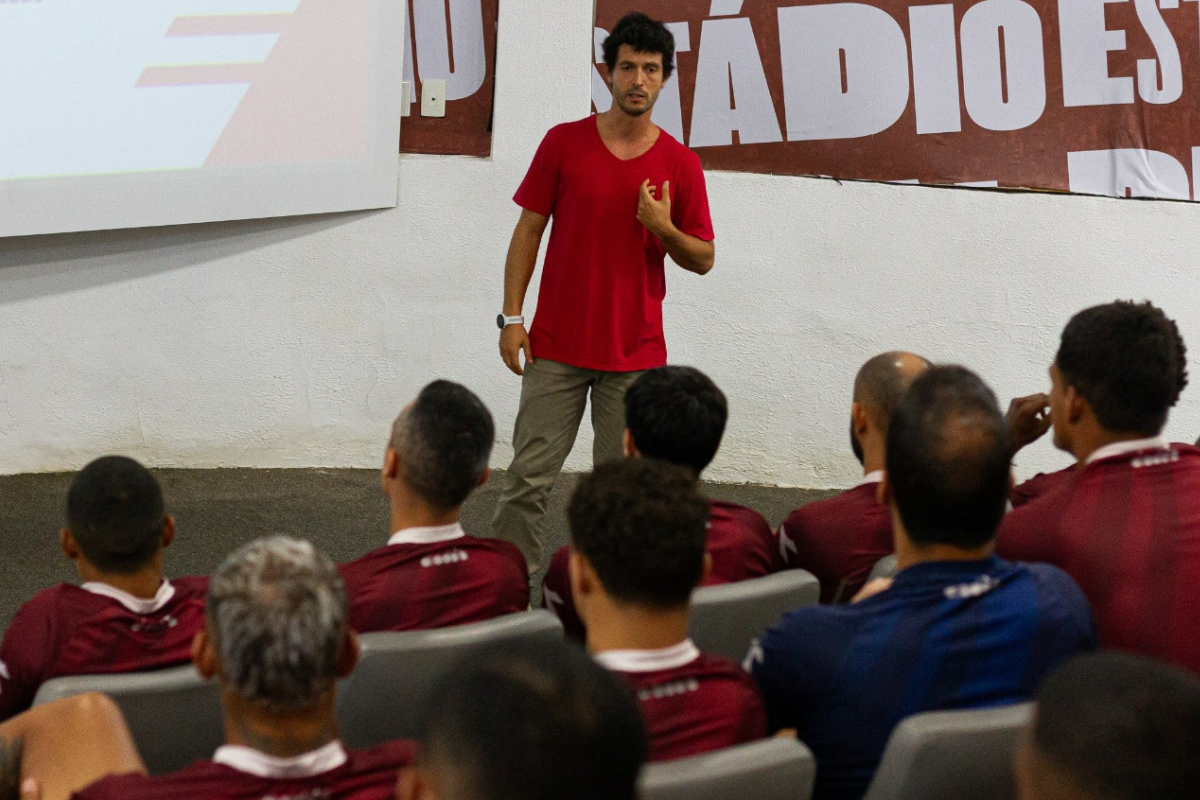Compliance Updates
Greenwood Gaming, Parx Casino Bring Baseless Lawsuit Against Pace-O-Matic and Pennsylvania Small Businesses & Fraternal Clubs Operating Legal Skill Games

Pace-O-Matic (POM), a gaming company that does significant business throughout Pennsylvania, today released the following statement in response to a baseless lawsuit brought by Greenwood Gaming and Parx Casino against POM and thousands of small businesses and fraternal clubs operating skill games across the state.
“The lawsuit against legal skill games launched by Parx Casino and Greenwood Gaming is meritless and attacks thousands of Pennsylvania businesses who operate skill games and rely on their revenue. This lawsuit ignores the law and legal precedent. We feel confident, as we always have, in the legal status of our skill games.
“Parx Casino is attempting to shield its efforts, through various consultants, and use the levers of government to harm legal skill games, and in particular POM’s Pennsylvania Skill games.
“Unfortunately, yet not surprisingly, many of the arguments made in this complaint are verbatim to attacks and opinions drafted by the law firm, Eckert Seamans Cherin & Mellott, LLC (Eckert), which has worked for Parx Casino. This is puzzling because a federal judge has ruled that Eckert “acted in bad faith” in shielding and misrepresenting their relationship with POM and Parx Casino. (See lawsuit summary below.)
“Eckert had been hired by POM but then deceived POM by taking millions of dollars in legal fees to represent the skill gaming company, while at the same time, representing Parx Casino which opposes POM’s operations in the Commonwealth. When confronted with the conflict of interest, Eckert first denied their actions, then swore to a federal district court that they would not engage in a future conflict. They then continued to work surreptitiously against POM and the small businesses and fraternal clubs operating skill games while continuing to represent Parx Casino.
“POM continues to actively work with legislators in Harrisburg to further regulate and tax the skill game industry.”
Background on POM’s Federal Lawsuit Against Eckert:
On, July, 11, 2022, POM filed a major fraud claim against Eckert, which is a major law firm with more than 300 lawyers across a network of 15 offices, including Philadelphia, Harrisburg, Pittsburgh, Boston, Washington, D.C., and Richmond, VA.
POM’s lawsuit contends that Eckert “took up arms” against POM on behalf of the Philadelphia-based Parx Casino; that Eckert “actively participated in and covertly manipulated litigation” in Pennsylvania Commonwealth Court adverse to POM’s interests; and that Eckert participated in a campaign intended to “destroy POM’s business by attempting to convince elected and appointed public officials that POM’s games are gambling devices that should be seized and outlawed.” In particular, Eckert used its influence to improperly target the Pennsylvania Gaming Control Board.
When confronted by POM’s allegation that Eckert was double-dealing and had breached its professional duties of loyalty and confidentiality, Eckert denied the claim, while seeking to shield the law firm’s emails with Parx Casino which would, if made public, reveal that numerous lawyers at Eckert, led by Mark Stewart, co-chair of Eckert’s gaming practice group, were indeed simultaneously taking money from and representing Parx Casino.
Parx Casino calls itself “the #1 casino in Pennsylvania” and is owned and operated by Greenwood Racing Inc.
Eckert, working on behalf of Parx Casino and its consultants, sought to block POM from doing business in Pennsylvania.
The suit also alleges that Eckert “violated their most basic fiduciary duties and concealed and misrepresented material facts to POM’s great detriment. As a result, POM is entitled to appropriate damages.
In November 2021, U.S. Magistrate Judge Joseph Saporito, Jr. found that Eckert acted in “bad faith” by seeking to withhold emails that demonstrated Eckert was representing both sides.
Eckert, Saporito ruled, “actively and clandestinely managed and participated in the representation of Parx in the Commonwealth Court litigation against its other client, POM. Moreover, based on our in camera review of the purportedly privileged documents, it did so with full knowledge that the conflict asserted by POM precluded its active and continuing representation of Parx in the Commonwealth Court litigation.”
Saporito continued, “in light of the clear and obviously intentional subterfuge demonstrated in the purportedly privileged documents, we have no difficulty concluding that these documents evidence an intent by Stewart and Eckert to play fast and loose with the courts.”
Eckert appealed Saporito’s ruling, which required Eckert to turn over to POM many internal emails. On July 5, 2022, Federal Judge Jennifer P. Wilson ruled for POM, declaring, “in making inconsistent representations to the court, Eckert has attempted to obstruct the discovery process as to the central issue in this case: whether Eckert breached its fiduciary duty to POM by representing Parx, a party with adverse interests, at the same time that it represented POM.”
Pace-O-Matic is a leading developer of legally compliant games of skill in the United States. Its games are played in thousands of small restaurants and bars, along with many social halls such as American Legion and Veterans of Foreign War posts. Our games generated millions of dollars in revenue for businesses and clubs in Pennsylvania last year and its games can be found in thousands of businesses, mostly small mom-and-pop shops, along with many fraternal and veterans’ organizations.
Canada
AGCO Fines Great Canadian Casino Resort Toronto $350,000 for Serious Regulatory Violations Linked to Impromptu After-Party on Gaming Floor

The Alcohol and Gaming Commission of Ontario (AGCO) has issued monetary penalties totaling $350,000 against Great Canadian Casino Resort Toronto for multiple violations of provincial gaming standards. The penalties follow an impromptu after-party that was permitted to take place in the pre-dawn hours directly on the casino’s gaming floor.
On September 27, 2024, an electronic dance music event attended by thousands of people was hosted in the theatre adjacent to the casino at Great Canadian Casino Resort Toronto. The event was marked by widespread intoxication, disorderly behavior, and numerous criminal and medical incidents – both inside and outside the venue – including alleged assaults, drug overdoses, and acts of public indecency. Although paid duty officers were present, additional police and emergency services were required to manage the situation.
In the midst of this high-risk environment, casino management approved an unscheduled request by the performing artist to host an after-party on the active gaming floor. The artist and more than 400 guests were permitted onto the gaming floor where the artist was allowed to perform amidst operational table games and gaming machines – without any prior risk assessment or planning.
As a result, security personnel were unable to effectively control the casino floor, including witness reports that an attendee was seen climbing onto slot machines. Failure to maintain appropriate control compromises the security, safety, and integrity of the casino floor. Following the conclusion of the event, the operator failed to promptly report these incidents to the AGCO as required.
Based on the findings of its review, the AGCO’s Registrar has issued an Order of Monetary Penalty (OMP) totaling $350,000 against Great Canadian Casino Resort Toronto. These penalties address critical failures in their operations, incident reporting, employee training, and the management of disturbances.
A gaming operator served with an OMP has 15 days to appeal the Registrar’s decision to the Licence Appeal Tribunal (LAT), an adjudicative tribunal that is part of Tribunals Ontario and independent of the AGCO.
“Casino operators have a fundamental duty to control their gaming environment. Great Canadian Casino Resort Toronto’s lapses in this incident compromised the safety of patrons and the security and integrity of the gaming floor,” Dr. Karin Schnarr, Chief Executive Officer and Registrar of AGCO, said.
Compliance Updates
Esportes da Sorte holds forum on “Integrity in Sports” with Ceará and Náutico

Esportes da Sorte hosted its Match-Fixing Prevention Forum last week at Ceará and Náutico as main sponsor of both clubs. Held in partnership with Sportradar, the initiative is part of a series of in-person workshops, with upcoming sessions planned for Corinthians and Ferroviária.
The project aims to combat illegal practices and reinforce a strong commitment to integrity in sport. Activities were tailored for athletes and members of the technical staff from the men’s and women’s professional teams, as well as the under-20 squads. During the sessions, topics such as the definition of match-fixing, types of fraud, fraudsters’ modus operandi, legal risks, and reputational impacts were covered. Participants were offered practical guidance on how to respond to suspicious approaches.
“This training programme reinforces our commitment to sports integrity and responsible gaming, pillars that guide our actions. We believe education is the best form of prevention, and we want to stand alongside clubs in this joint effort for transparency and the protection of sport,” said Ana Carolina Luna Maçães, Compliance Manager at Esportes Gaming Brasil, the group behind the Esportes da Sorte brand.
“Ceará takes this topic very seriously. The club is an important player in the fight against match-fixing. We act preventively with regular meetings and have a handbook that addresses the topic with our squad. It is our duty to provide these moments of learning for athletes and technical staff. We live in a time when the integrity of sport is being questioned. In this scenario, actions like this are extremely important,” commented Lucas Drubscky, Football Executive at Ceará.
The sessions were led by Felippe Marchetti, Integrity Partnerships Manager at Sportradar, a global sports technology company and recognized authority in sports integrity. In Brazil, Sportradar partners with the Brazilian Football Confederation (CBF) and 17 state federations, monitoring more than 10,000 matches per season. The company recently signed a Technical Cooperation Agreement (TCA) with the Ministry of Finance and the Ministry of Sports.
“Raising awareness among athletes and teams is one of the most effective ways to protect competitions from manipulation. These workshops are designed to equip participants with the knowledge and tools to recognize threats and act responsibly. We are proud to support initiatives like this that strengthen the integrity of Brazilian sports,” said Felippe Marchetti.
Compliance Updates
New Bill in California Could End Online Sweepstakes Gaming

California State Assemblymember Avelino Valencia (D-Anaheim) has introduced Assembly Bill (AB) 831 to protect Californians from unregulated online gambling by prohibiting online sweepstakes games that use a “dual currency” model to mimic casino-style wagering.
“Sweepstakes” platforms sell virtual coins that are used to play casino-style games and can be redeemed for cash or prizes, essentially operating as unlicensed gambling businesses. By exploiting “No Purchase Necessary” disclaimers, they sidestep California’s regulatory framework and evade the state’s voter-approved proposition related to Tribal-State gaming. Many of these “sweepstakes” operators are based offshore and function without proper oversight, avoiding requirements like consumer protections, responsible gaming safeguards, background checks, and tax compliance.
“We cannot look the other way while these platforms exploit legal grey areas. These operations undermine the voter-approved framework that affirms Tribal governments’ sovereign right to conduct gaming in California. AB 831 strengthens that framework and ensures gaming in California remains fair and accountable,” said Assemblymember Avelino Valencia.
AB 831 fortifies existing sweepstakes laws and clarifies the illegality of internet-based sweepstakes that use the dual currency model. It reinforces the shared responsibility between the State, licensed operators, and Native Nations to keep gaming safe, transparent, and accountable. AB 831 is co-sponsored by the Yuhaaviatam of San Manuel Nation, the California Nations Indian Gaming Association (CNIGA), and the Tribal Alliance of Sovereign Indian Nations (TASIN), reflecting strong support from across Indian Country.
“For over 25 years, Tribal governments like Yuhaaviatam of San Manuel Nation, have upheld the will of California voters by operating gaming with integrity. That commitment has allowed us to reinvest in our communities, boost local economies, and support essential public services on reservations and in partnerships across the state. Illegal online gaming now threatens this foundation—compromising voter-approved law and putting Californians at risk,” said Yuhaaviatam Tribal Council of San Manuel Chairwoman Lynn Valbuena.
“We support this legislation that will close dangerous loopholes and strengthen the integrity of California’s gaming system. We remain committed to defending a proven framework that protects the sovereignty of Tribal Nations and delivers real and lasting benefits to all Californians. Together, Tribal governments and the State of California will continue to address and take decisive action against illegal internet gaming in all its forms,” said Yuhaaviatam Tribal Council of San Manuel Vice Chairman Johnny Hernandez, Jr.
“Tribal government gaming contributes nearly $25 billion to California’s economy, sustains over 112,000 jobs, and funds critical community programs. Unregulated online sweepstakes threaten this voter-approved system by imitating casino gaming without oversight, accountability, or community investment. These illegal platforms erase the benefits of regulated gaming while exposing consumers to serious risks,” said CNIGA Chairman James Siva.
AB 831 is pending a hearing in the Senate.
-

 Compliance Updates7 days ago
Compliance Updates7 days agoPHAI Files Lawsuit in Pennsylvania Over Caesars’ Dangerous Online Casino Promotion and “Pay Through Bonuses”
-

 Latest News7 days ago
Latest News7 days agoTG Lab unveils new Brazil office to further cement position as market’s most localised platform
-

 partnerships6 days ago
partnerships6 days agoInternational Gaming Standards Association Welcomes New Payments Committee Member: Sightline Payments
-

 Compliance Updates6 days ago
Compliance Updates6 days agoHonolulu Mayor Signs New Laws Targeting Illegal Game Rooms
-

 Latest News5 days ago
Latest News5 days agoFBM® unveils golden treasures in Mexico with Croc’s Lock™ bites
-

 Latest News6 days ago
Latest News6 days agoAGS Named One of U.S. News & World Report’s 2025–2026 Best Companies to Work For
-

 eSports4 days ago
eSports4 days agoBETBY EXPANDS LATAM FOOTPRINT WITH MOBADOO ESPORTS PARTNERSHIP
-

 Latest News4 days ago
Latest News4 days agoOptimove and EveryMatrix Launch Real-Time Integration to Power Smarter Marketing for iGaming Operators











